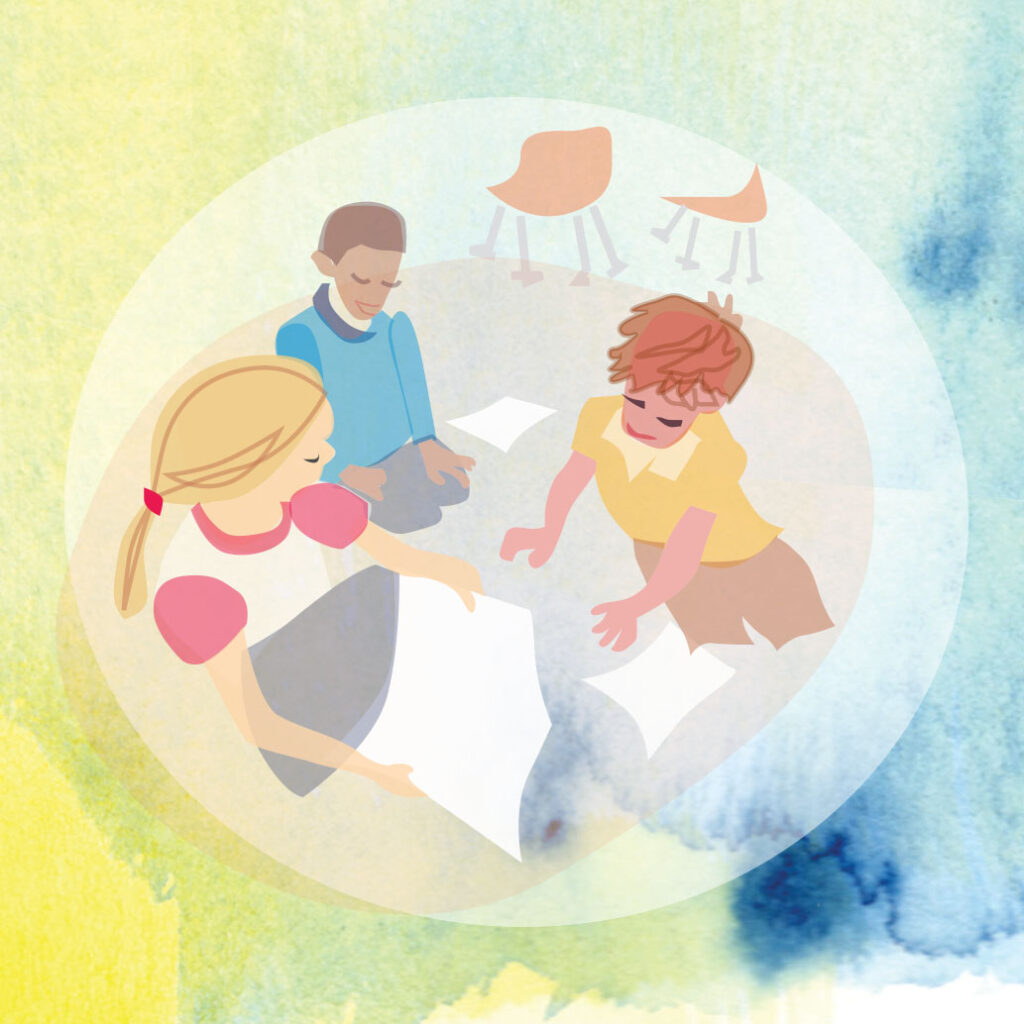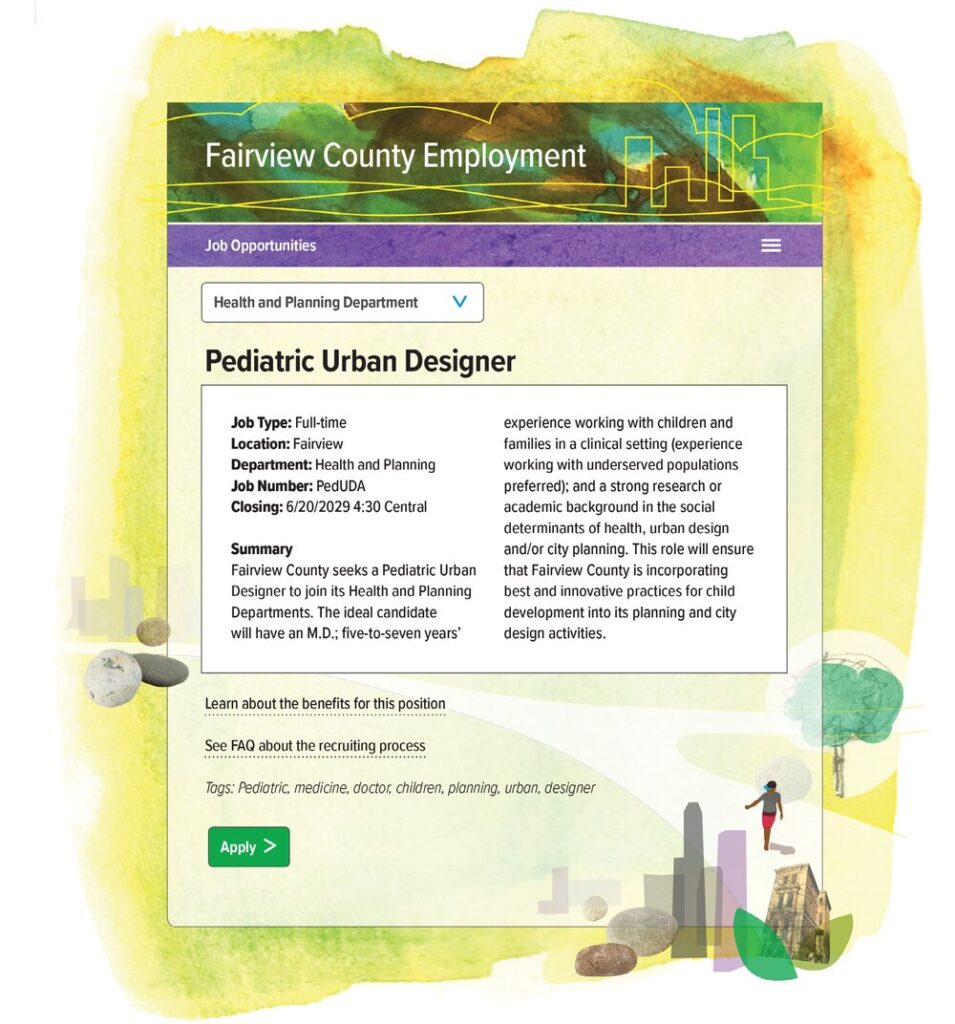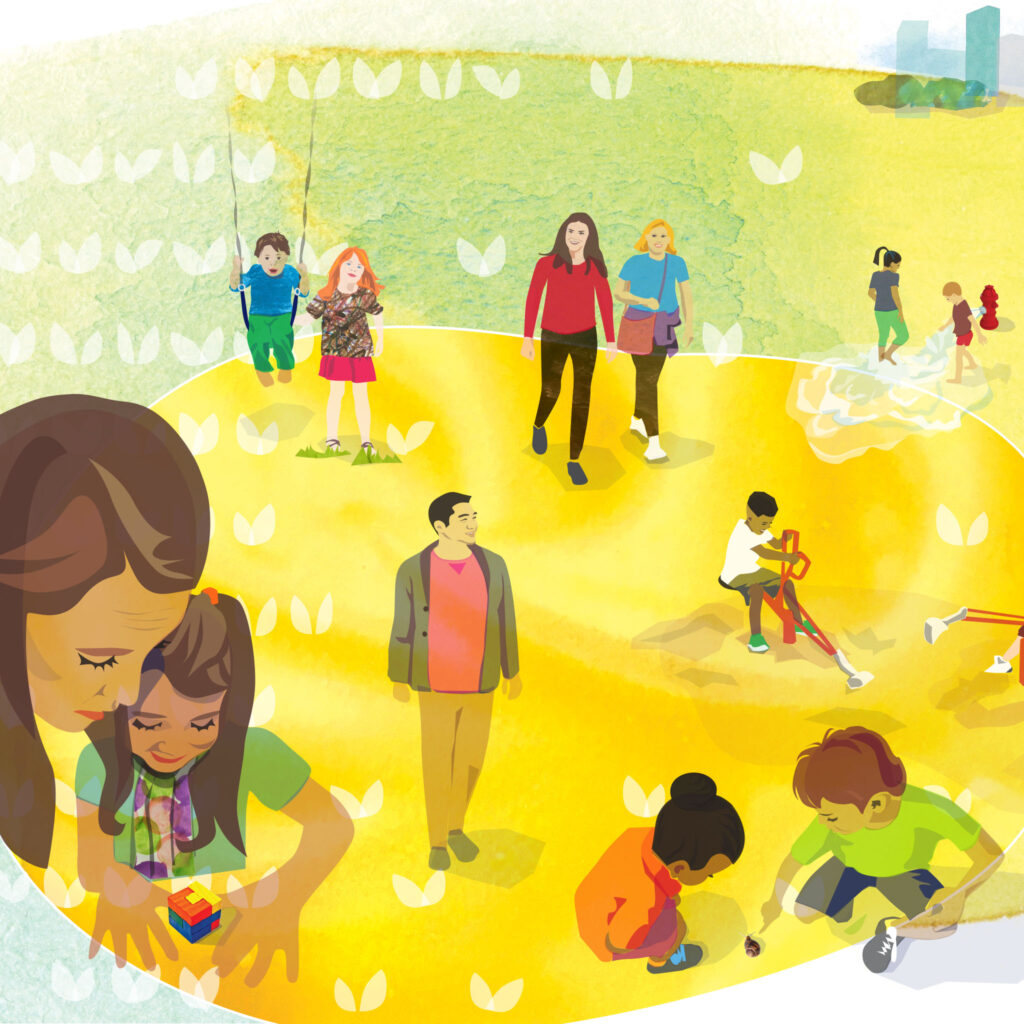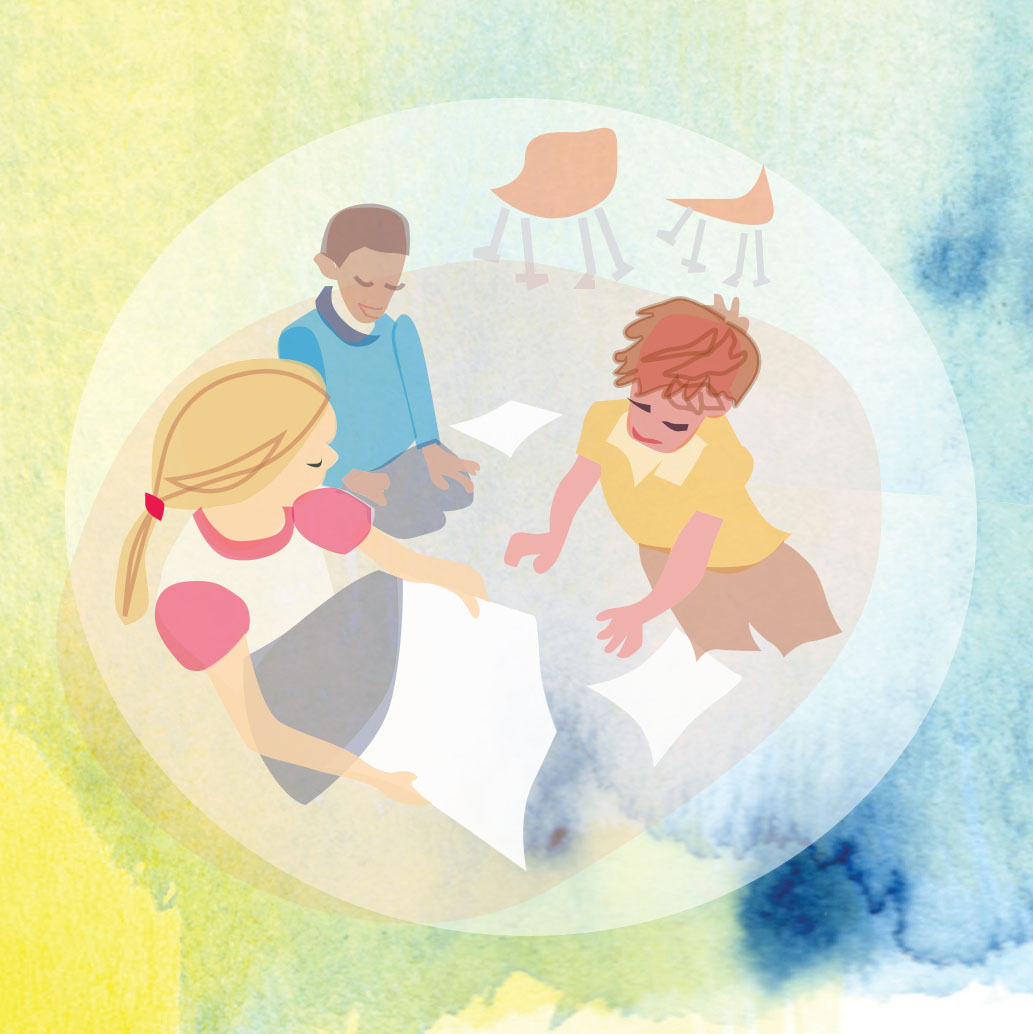How might the impacts of the Covid-19 pandemic continue to affect children and families in the years to come? Possible implications include caregivers struggling to provide responsive care to their young children because of stress over losing their livelihoods; further deterioration of trust in the governmental institutions on which families depend for social services; reduced travel leading to a rise in inequalities between places; and disruptive changes to cities.
While it is almost certainly not the case that cities will be abandoned en masse, how we used to interact with the urban landscape- parks, restaurants, mass transit, stores- has likely already changed forever. The disruptions caused by the pandemic present unique opportunities to reimagine and redesign how we build and how we use cities. And, to take into account the needs of children who have often been ignored as cities are designed and developed.

Considering the Future
In October 2019, we published Foundations for Flourishing Futures: A Look Ahead for Young Children and Families, which offers insight on issues 10 years into the future that may impact children everywhere, including issues related to cities and public space. The forecast also provides decision-makers with ideas for future directions to follow now and once Covid-19 is in retreat.
For the last two years, Capita has partnered with KnowledgeWorks to use strategic foresight to explore global transformations in society and their impact on the well-being of young children and their families. The aim of strategic foresight is to investigate possibilities for the future, and support stakeholders to use those possibilities to chart a forward path. It involves examining assumptions, exploring current trends and trajectories and creatively considering alternatives, pushing the boundaries of what is currently plausible. The tools of strategic foresight can help us chart a brighter future for our youngest urban residents.
Creating Artifacts from the Future
Foundations for Flourishing Futures identifies emerging issues within five domains of life — health, learning, social infrastructure, autonomy and agency, and caregiving — that are critical to helping young children and their families to flourish over the coming decade. To concretely explore the implications of each trend we posited “artifacts from the future,” which are objects, places, practices, policies or roles that could exist in ten years’ time.
Artifacts from the future are a storytelling tool of strategic foresight. They are an extrapolation of trends and signals of change that exist today, and they provide specific and concrete depictions of what we might see or experience in the future. An artifact is not meant to predict what will happen but rather to offer a vivid image of what could be possible. They invite us to populate the future in ways that we tend to shy away from when having more general or analytical discussions about the future. From there, we can have specific conversations about implications, preferences and strategies toward creating the future we hope to see.
Envisioning a Pediatric Urban Designer
Within the health domain, the forecast reflects on how emerging technologies and new understandings of community-level health are reshaping how young children’s and families’ wellbeing are measured and supported.
As we explored the intersection of those issues, we imagined a new job: Pediatric Urban Designer. This role involves helping municipal decision-makers translate the science of young children’s development and well-being into practical proposals in areas such as public transport and remodeling public spaces.
Building on the work of Urban 95 and cities around the world that have taken seriously the need to redesign for children, existing design professionals and city officials are already spending more time and brainspace supporting the well-being of our youngest urban citizens. While we aren’t suggesting that the Pediatric Urban Designer role should exist, we do think– based on already evident signals– that it represents a tangible future possibility that might develop to advance the emerging consensus that cities have a concrete role to play in fostering the health and well-being of children.
Pediatric Urban Designers might have backgrounds in urban design, child health, public policy, and/or user experience design. These experts could work across departments in city governments to ensure that “Think Babies” becomes a universal design principle as existing cities adjust to post-pandemic realities and new cities, particularly in rapidly urbanizing parts of Africa and Asia, begin to take shape. Pediatric Urban Designers would work hand-in-hand with city Chief Resilience Officers to ensure that the particular needs of young children– and their trauma-sensitive developing brains– resulting from climate change and, in particular, catastrophic weather events are prioritized.

Reimagining Cities
Returning to normal after the pandemic would be a defeat. For all its difficulties, the situation also opens the door to many new opportunities. It has, for example, taught us that our lives – individual, communal, and global – depend on the health of people, cities, and nations on the other side of the world.
We must reimagine the social contract in order to emerge from a post-Covid world stronger than before. At the core of this social contract must be a reconsideration of who cities are for and whom their infrastructures serve. Are they for only the rich and the powerful or also for the very young, the poor, the vulnerable? Are they only for commerce and industry or for play, recreation, and moments of quiet recollection? Will they be resilient for the rich or for all?
These are the pressing questions that we will all wrestle with as they seek to ensure that our cities — among their many other purposes — give children a good start in life.
Katie King is the Director of Strategic Foresight Engagement at KnowledgeWorks. Joe Waters is the Co-Founder + CEO of Capita.


